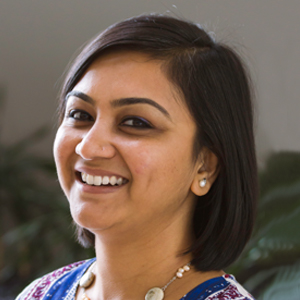Continental shift
I was not the most focused kid in school. After finishing my primary studies, I more or less stumbled into an undergraduate zoology program with a vague sense that I liked biology and found botany boring. In the same unthinking way, I rode the science-student tide to a zoology master’s degree at the University of Calcutta in India.
It was around this time that I met my future husband, Shurjo, who was my classmate at the university. He had been more strategic with his academic life and helped me bring a similar, if belated, focus to my academic career.
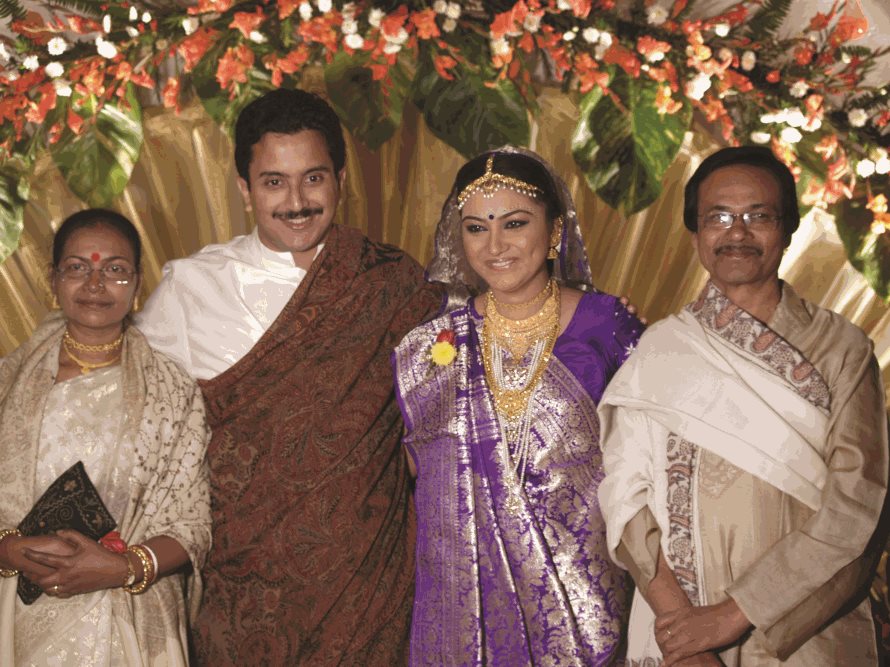 The author with her parents and husband on her wedding day.
Photos courtesy of Soma Chowdhury
The author with her parents and husband on her wedding day.
Photos courtesy of Soma Chowdhury
A few months into our relationship, Shurjo started preparing for the American Graduate Record Exam test so that he could go to the United States and get a Ph.D. in primate genomics. We didn’t really know what him pursuing that Ph.D. meant for our relationship until the moment he was offered a graduate assistantship from Louisiana State University. It immediately became clear that, if we wanted to be together, I would need to be willing to move to the U.S. and to take the GRE myself. Without stopping to think about the life-changing nature of this decision, I decided to start studying.
I told my parents that I wanted to go to America for graduate school. As small-town folks from the Indian state of West Bengal who had spent almost all their lives within a 20-mile radius of where they were born, they didn’t know how to react. America! My mom didn’t even know where it was and had to be told I’d be going to the other side of the globe. I thought that the real hurdle would be convincing my father that this was a good thing. He hadn’t even wanted me to apply to colleges in Calcutta after I finished high school, nervous as he was for me to leave the safety and security of our small town and incur the financial burdens of big city living. But, to my surprise, he eagerly agreed.
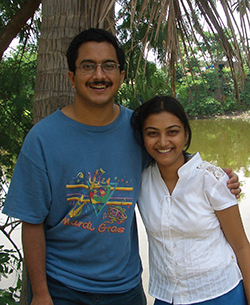 The author’s husband on a brief visit home. She left India and joined him at Louisiana State University a few months later.
The author’s husband on a brief visit home. She left India and joined him at Louisiana State University a few months later.
Shurjo soon left India for Baton Rouge, La. I had no idea where that was. All I knew about America was what I’d heard about New York City, Las Vegas and Niagara Falls. I channeled the sadness I felt when he left into studying even harder for the GRE. I worked so hard, in fact, that I didn’t recognize myself. Never in my life had I been so motivated.
My GRE score was decent, and I managed to land a graduate assistantship at LSU. It was a great relief. But soon the next dose of reality hit. I was going to need money — money for an air ticket, clothes, a visa and paraphernalia related to the trip.
Given my finances at the time, the total amount of money was enormous. I felt desperate but still determined to join Shurjo. He had saved some money from his graduate stipend, which would cover a few things. A couple of weeks after I was accepted at LSU, I applied for a travel scholarship offered by the University of Calcutta, never thinking that I would get it. I did get it, and it covered my air ticket. So that I could shop for the basics of starting a new life, my father took a loan out against his retirement account.
As overwhelming as coming up with the money felt, it was easy compared to the next and most difficult hurdle: getting a U.S. student visa. At the time I didn’t realize that this would be such a challenge.
At the U.S. embassy in Kolkata, I was told by a consular official that my parents’ finances were inadequate for me to have any true ties to my own country. The fact that I already had funding from a U.S. university did not matter. In an instant, my passport was pushed back at me through the narrow slit in the thick glass window. I was crying like a baby when I called Shurjo from a local phone booth next to the embassy. I’d had no clue that a student visa could be denied in the blink of an eye by a consular official who was officially mandated by her government to treat me as a possible immigrant.
I felt helpless. I had only a month before the fall semester started at LSU, but I couldn’t get a new interview at the embassy for another two weeks. Desperate, I took the first possible interview slot. My father went to work gathering everything he could to prove that he was financially stable and would not be dependent on my earnings in the U.S. He also made a will in which he left all his property to me in the hopes that this would convince the embassy officials that I had roots in India. My future father-in-law notarized a document saying that he would help me if I needed any financial help while in the U.S. I was incredibly grateful for all the help I was getting from those around me. It all felt so surreal.
After 14 agonizing days flooded with anxiety, I appeared at the U.S. embassy for the second time. A different officer asked one or two questions and approved the visa. He didn’t even look at all the documents I had so painstakingly gathered.
At first, I was in shock. I couldn’t come to terms with the arbitrary nature of the whole process. I told my father, who had been waiting apprehensively outside the embassy, what had transpired. There were no more hurdles.
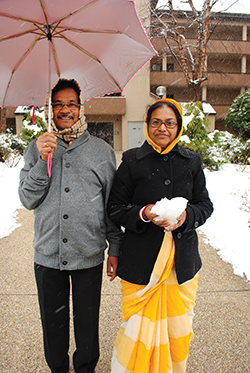 Chowdhury’s parents on their first visit to the United States. They’d never before flown on an airplane or seen snow.
Chowdhury’s parents on their first visit to the United States. They’d never before flown on an airplane or seen snow.
The next two weeks were a blur of preparations, and I didn’t get a chance to contemplate the gravity of what was happening. There were a million other things to worry about. I almost never had spoken to anyone in English before, never had flown in an airplane, hadn’t been to an airport, never had cooked anything edible, and never had lived without my parents for more than a month.
On the day of my flight, I checked my packing list one last time, taking special care to note the pressure cooker and the spices, and hurriedly jotted down a few recipes from my mother. I was the first person from my extended family to step outside of India. Many of my friends, neighbors and relatives came to celebrate that moment and to bid me adieu. I looked through the back window of the rented SUV that would take me to the airport and saw everyone waving.
As we drove off, my friends and relatives gradually grew smaller, and I realized I was leaving everything I knew behind. I felt simultaneously blank, numb, thrilled and nervous. As I boarded the flight to Chicago, I was struck by a great sadness and began to sob uncontrollably.
After 36 hours in a dystopian world of airports and airplane interiors, I landed in Baton Rouge. While I was on the flight, I had thought a lot about what I would be doing when I first saw Shurjo again. He was waiting for me with two of his friends, in almost as much shock as I was. Where I come from, displays of affection in public are frowned upon, so I could not even give him a hug. The moment we saw each other, both of us nervously smiled, equally unsure if we were indeed in the same baggage claim area, actually together, or if the whole thing was a cruel and stress-induced hallucination.
I remember it took quite some time for our happy new reality to sink in. Another chapter of my life was soon underway, and I found myself surviving grad school, dealing with endless visa issues, understanding Southern accents, learning how to cook and feeling for the first time in my life what it meant to be homesick.
It’s been 10 long years since I arrived in the U.S. Shurjo and I are still facing the two-body problem while looking for jobs (thankfully, this time, on the same continent). I survived grad school with a master’s degree, discovered a flair for cooking and moved from Baton Rouge to the Washington, D.C. area with Shurjo. After many years of fooling myself that I wanted to do research, I took a leap of faith and became a science writer. Our U.S. visa issues finally got resolved.
I can’t say that I’ve sorted out everything in my life. But, for now, I think I’ve stopped meandering and found the right direction, both personally and professionally.
Enjoy reading ASBMB Today?
Become a member to receive the print edition monthly and the digital edition weekly.
Learn moreGet the latest from ASBMB Today
Enter your email address, and we’ll send you a weekly email with recent articles, interviews and more.
Latest in Opinions
Opinions highlights or most popular articles
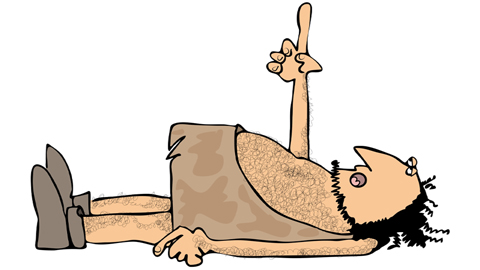
A paleolithic peer review
You might think review panels have only been around for the last century or so. You would be mistaken.

Early COVID-19 research is riddled with poor methods and low-quality results
The pandemic worsened, but didn’t create, this problem for science.

So, you went to a conference. Now what?
Once you return to normal lab life, how can you make use of everything you learned?
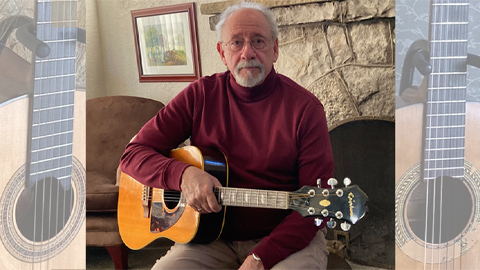
My guitar companion
A scientist takes a musical journey through time and around the world.
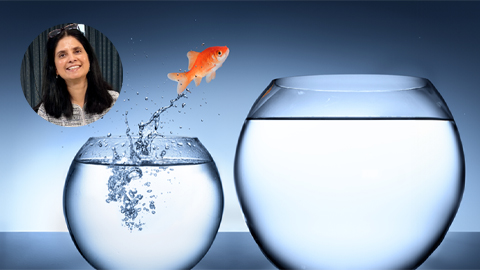
Catalyzing change and redefining purpose
To mark Women’s History Month, Sudha Sharma writes about her journey from focusing on her own research program to being part of a collaborative COVID-19 project.
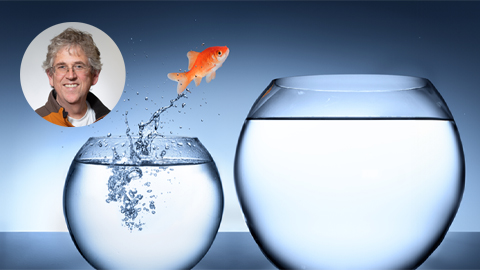
The power of sabbaticals
To mark Women’s History Month, Nicholas Rhind writes about learning techniques in other researchers’ labs that empower the work in his own.

